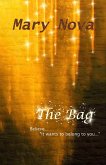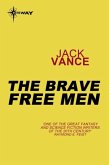In my preparation for this memoir, I have had several discussions with and heard from innocent men and women of how clear evidence were presented to the courts and their motions for release on the grounds of their innocence were denied by the courts. Some of these individuals served time and were released after years, in spite of evidence of their innocence. There were some who were blessed to be free by a parole board and some by way of executive relief. In the case of release of the parole board or executive relief, the innocent individual retained prison records. Though these individuals may be innocent, in the eyes of society, they are still considered guilty because of the prison records hanging over their heads. I often wonder why is it so hard to obtain freedom from a wrongful conviction, particularly when the evidence of innocence is before the courts. Perhaps it is hard for people to admit their wrongdoing regardless of the negative impact on one's life. This memoir talks about a man, Mawuli B., who presented facts and evidence of his innocence to the courts, but his motion for release was denied for years. After the review of Mr. Mawuli B's case by the executive branch of his local Caribbean island, it was revealed and accepted that he was not given a fair trial. His conviction was upheld, and his sentence was commuted to time served. After twenty-five years of wrongful imprisonment, Mr. Mawuli B. was "blessed to be free."
Dieser Download kann aus rechtlichen Gründen nur mit Rechnungsadresse in A, D ausgeliefert werden.









